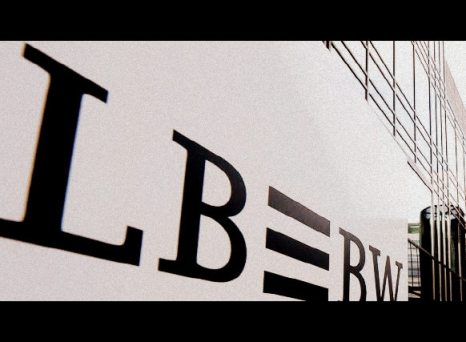Babiš and his bankers
Any taxi driver could tell you that bankers are powerful enough without them having the finance minister in their debt as well.

Babisbanka?
I do not question Andrej Babis’s motives or his past but I do doubt the wisdom of thinking him immune from the insidious nature of power.
Babis might well be a man who has everything, but he is also a businessman with a bank debt of approaching EUR 1 bn at the last count.
Miroslav Kalousek’s attempts to discredit Babis by banging on about his disputed StB record was backward looking. Sensibly, Kalousek is now targeting the billionaire politician’s potential conflicts of interest if he becomes, or is to nominate, the next finance minister. (Whatever you think of Kalousek, he makes an exceptionally good leader of the opposition -indeed, he IS the opposition today.)
How can we avoid the suspicion that the finance minister will be nice to one bank so that it gives Agrofert better credit terms, Kalousek asked? This is a good question given that over a quarter of Agrofert’s debt is held by Komercni banka (some Kc 6 bn in 2012). But a better question would be how to prevent the finance minister (or his political patron) from favouring the entire banking sector.
After all, Babis has debt spread around some 15 or more banks, including CSOB and Unicredit, which hold 10 per cent each of Agrofert's total debt; Ceska sporitelna, Citibank and Tatra banka, with some 9 per cent each; and Raiffeisenbank and Slovenska sporitelna, with some 6 per cent each.
Any taxi driver could tell you that bankers are powerful enough without them having the finance minister in their debt as well. But we would need a financial analyst to explain whether Agrofert’s debt ratio (the ratio of total debt to total assets) is healthy, a judgement based upon the cash flow from its 200 odd companies. Let us hope that the ratio is very robust indeed. This would at least reduce the leverage that his banking creditors have over Babis. And even if it is robust, we can hardly expect Babis to treat the banking sector objectively given his one billion euro bank loan. And what if Babis were actually to own a bank himself, which is his clear intention? What would this do for his objectivity?
It would be like expecting an environment minister formerly employed at the country’s largest manufacturer of chemical fertilisers or at Temelin NPP to treat the agrochemicals or nuclear energy sector objectively. And that is an idiotic expectation.

Babisbanka?
I do not question Andrej Babis’s motives or his past but I do doubt the wisdom of thinking him immune from the insidious nature of power.
Babis might well be a man who has everything, but he is also a businessman with a bank debt of approaching EUR 1 bn at the last count.
Miroslav Kalousek’s attempts to discredit Babis by banging on about his disputed StB record was backward looking. Sensibly, Kalousek is now targeting the billionaire politician’s potential conflicts of interest if he becomes, or is to nominate, the next finance minister. (Whatever you think of Kalousek, he makes an exceptionally good leader of the opposition -indeed, he IS the opposition today.)
How can we avoid the suspicion that the finance minister will be nice to one bank so that it gives Agrofert better credit terms, Kalousek asked? This is a good question given that over a quarter of Agrofert’s debt is held by Komercni banka (some Kc 6 bn in 2012). But a better question would be how to prevent the finance minister (or his political patron) from favouring the entire banking sector.
After all, Babis has debt spread around some 15 or more banks, including CSOB and Unicredit, which hold 10 per cent each of Agrofert's total debt; Ceska sporitelna, Citibank and Tatra banka, with some 9 per cent each; and Raiffeisenbank and Slovenska sporitelna, with some 6 per cent each.
Any taxi driver could tell you that bankers are powerful enough without them having the finance minister in their debt as well. But we would need a financial analyst to explain whether Agrofert’s debt ratio (the ratio of total debt to total assets) is healthy, a judgement based upon the cash flow from its 200 odd companies. Let us hope that the ratio is very robust indeed. This would at least reduce the leverage that his banking creditors have over Babis. And even if it is robust, we can hardly expect Babis to treat the banking sector objectively given his one billion euro bank loan. And what if Babis were actually to own a bank himself, which is his clear intention? What would this do for his objectivity?
It would be like expecting an environment minister formerly employed at the country’s largest manufacturer of chemical fertilisers or at Temelin NPP to treat the agrochemicals or nuclear energy sector objectively. And that is an idiotic expectation.

 Trumpova „reciproční“ tarifní formule. Ekonomický populismus maskovaný matematikou
Trumpova „reciproční“ tarifní formule. Ekonomický populismus maskovaný matematikou Miluji cla! Donald Trump a jeho životní láska
Miluji cla! Donald Trump a jeho životní láska Finský prezident má recept na Trumpa. Golfovou diplomacii!
Finský prezident má recept na Trumpa. Golfovou diplomacii! Ukrajinská svatba online: rychlý válečný obřad bez příkras i bez příloh
Ukrajinská svatba online: rychlý válečný obřad bez příkras i bez příloh Z deníku dobrovolníka: Nebezpečná cesta za velitelkou Runou
Z deníku dobrovolníka: Nebezpečná cesta za velitelkou Runou

